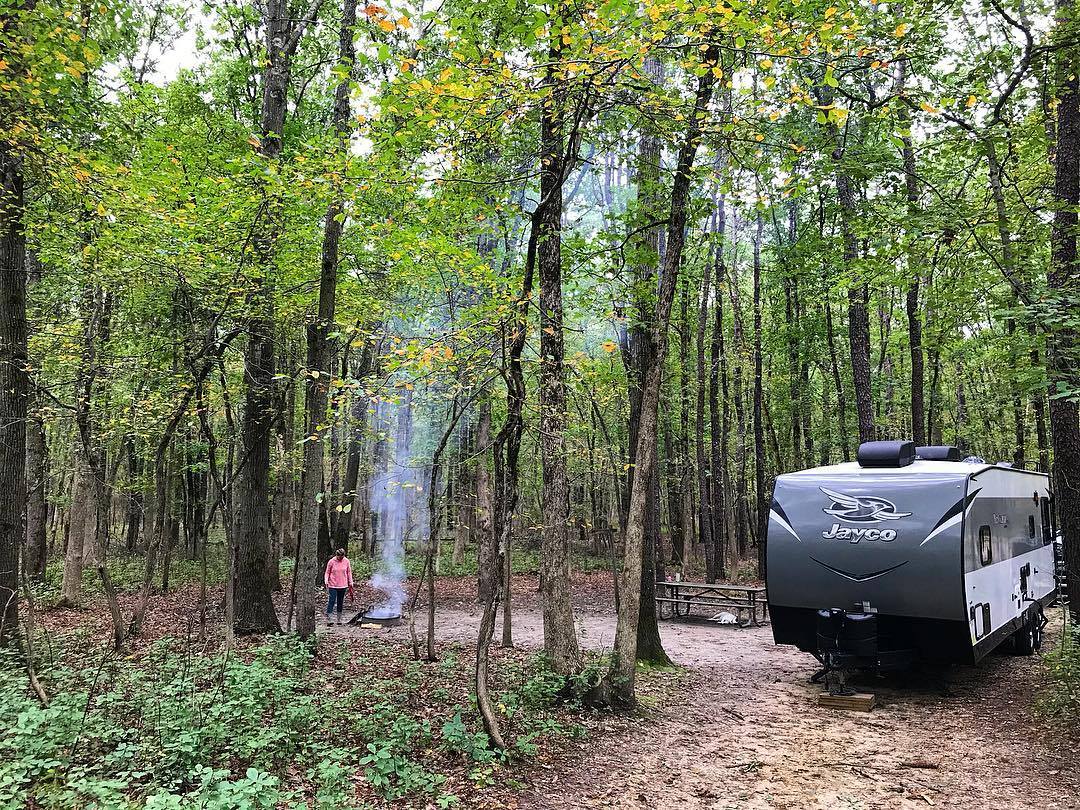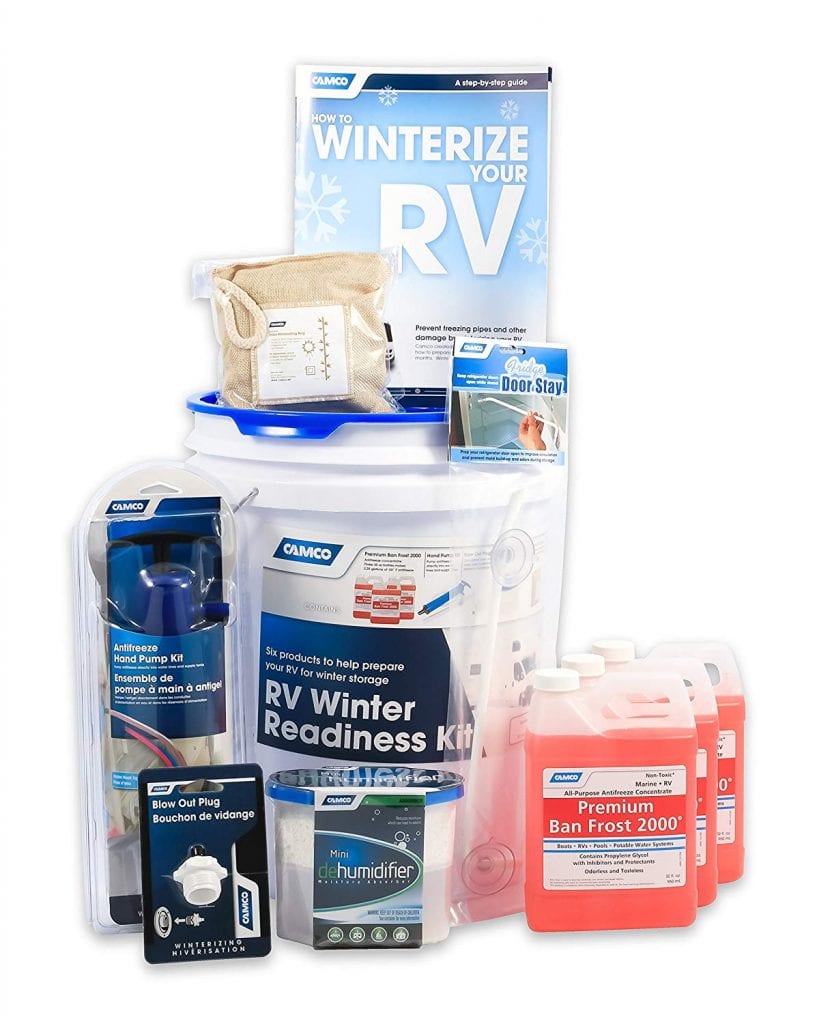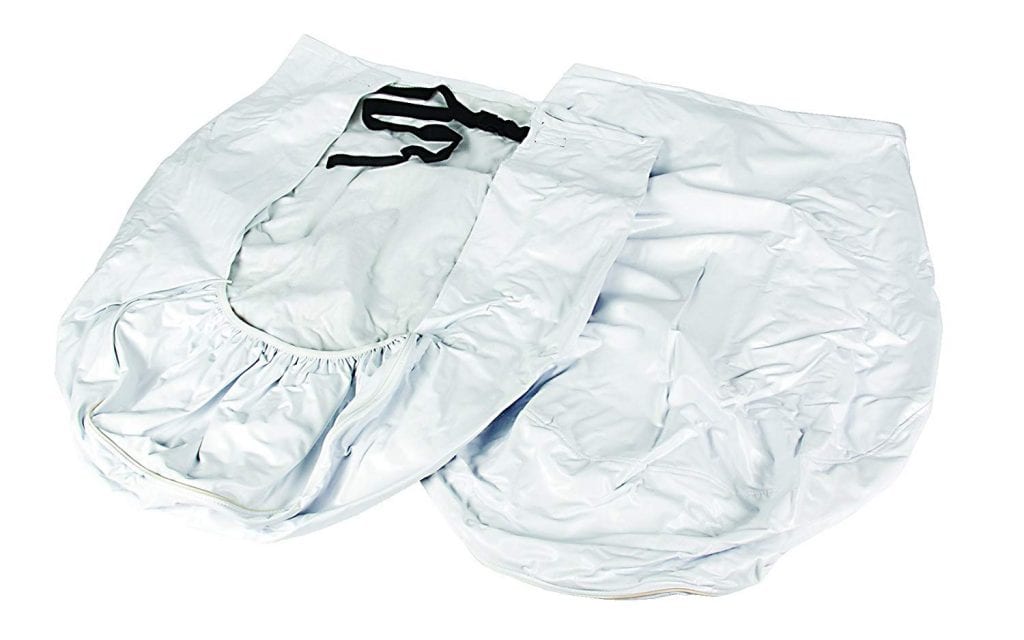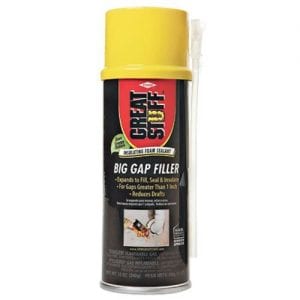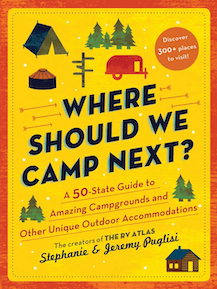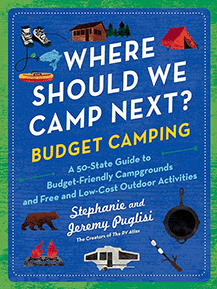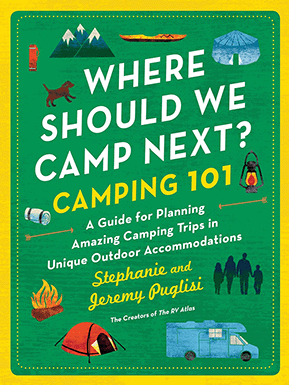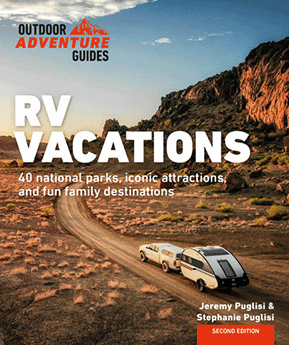It’s that time of year again, when people across the country in colder climates are putting their RV babies to bed for the winter season. Knowing the basics of RV winterizing and storage is one of the most important ways for you to protect your beloved investment.
So we asked the most knowledgable expert we know, Mark Polk, to walk us through the crucial parts for RV winterizing and storage. Mark Polk has been working in the RV servicing industry for decades, and he’s seen it all. Lucky for us, he’s willing to pass along the lessons to the RVFTA community.
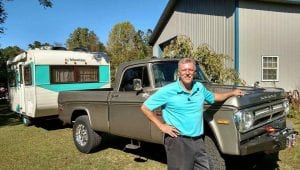
Once of the most important things we have realized about this topic is that folks spend soooo much time learning about the basics of winterizing. But they don’t pay enough attention to safely storing their RV while not in use. So even if you don’t live in a cold weather climate, there’s lots of good info here for you as well.
Take a listen to the episode to hear Mark answer all our questions about RV winterizing and storage. You can also find Mark’s complete course on the topic here. We highly recommended all of Mark’s courses at RVOnlineTraining.com. You can get 20% off all of the courses there using code RVFTA.
RV Winterizing
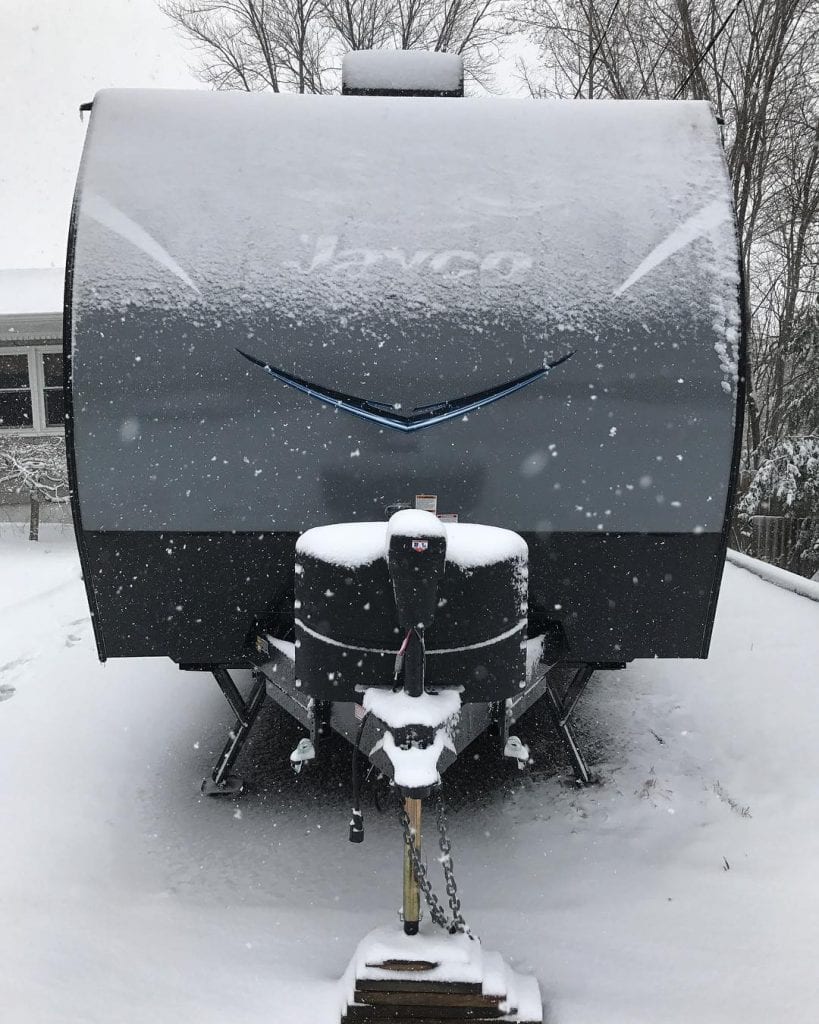
In the first segment of the podcast, we talk about the basics of RV winterizing. What is winterizing? And what are the most common mistakes or errors made when people winterize their own RVs?
First, let’s define our terms…
What is RV winterizing?
Technically, winterizing is the act of preparing a home or automobile for cold weather conditions. An RV is a combination of both a home and an RV. So we definitely need to prep them for winter weather.
Who needs to winterize their RVs?
Anyone living in a region that experiences temperatures below freezing will need to winterize their RV.
Steps in the RV Winterizing Process…
The most important part of RV winterizing is taking all the water out of the plumbing system. If water is left anywhere in the tanks, pipes, pump, or water heater, freezing temperatures can lead to cracked components. The most common damage is from water left in fittings or elbows. When the water freezes, it expands. This leads to the cracking of those fittings or elbows. This can be an expensive mistake. A cracked water heater can cost an owner in the neighborhood of $600 or more.
Mark gives a basic rundown of removing the water from the RV system, bypassing the water tank, and running the antifreeze through the system. Here’s an example of an RV winterizing kit that we discussed.
And if you want more specific, step-by-step directions, make sure you check out Mark’s course here.
What are the most common mistakes people make when winterizing their RVs?
- They forget to bypass the water heater. The entire water heater is going to fill us with antifreeze before it goes into the water lines. You are going to waste a lot of money on antifreeze.
- They forget about outdoor showers, ice makers, and washing machines.
- They add antifreeze directly to fresh water tank and then use the water pump to draw it through the system. This seems to be a convenient way to work the antifreeze through the system. But in reality it introduces antifreeze into your fresh water tanks which will be very difficult to remove in the spring.
Mark does believe that anyone, with a little bit of training, can easily winterize their own RV. However, it’s important to note that it’s not too expensive to have the process done at a local RV service center. We’ve actually have had it done by our mobile RV repair professional during the day while we were at work! It will generally cost less than $100.
Empty and Flush the Grey, Black, and Freshwater Tank
Many people do a tank clean out as part of their de-winterizing process in the spring. And that’s definitely a good idea. But Mark also recommends doing it as part of your winterizing process. Why? It gives you a chance to flush out any leftover sediment that might have collected over the course of the camping season. So add this to your RV winterizing punch list as well.
RV Storage
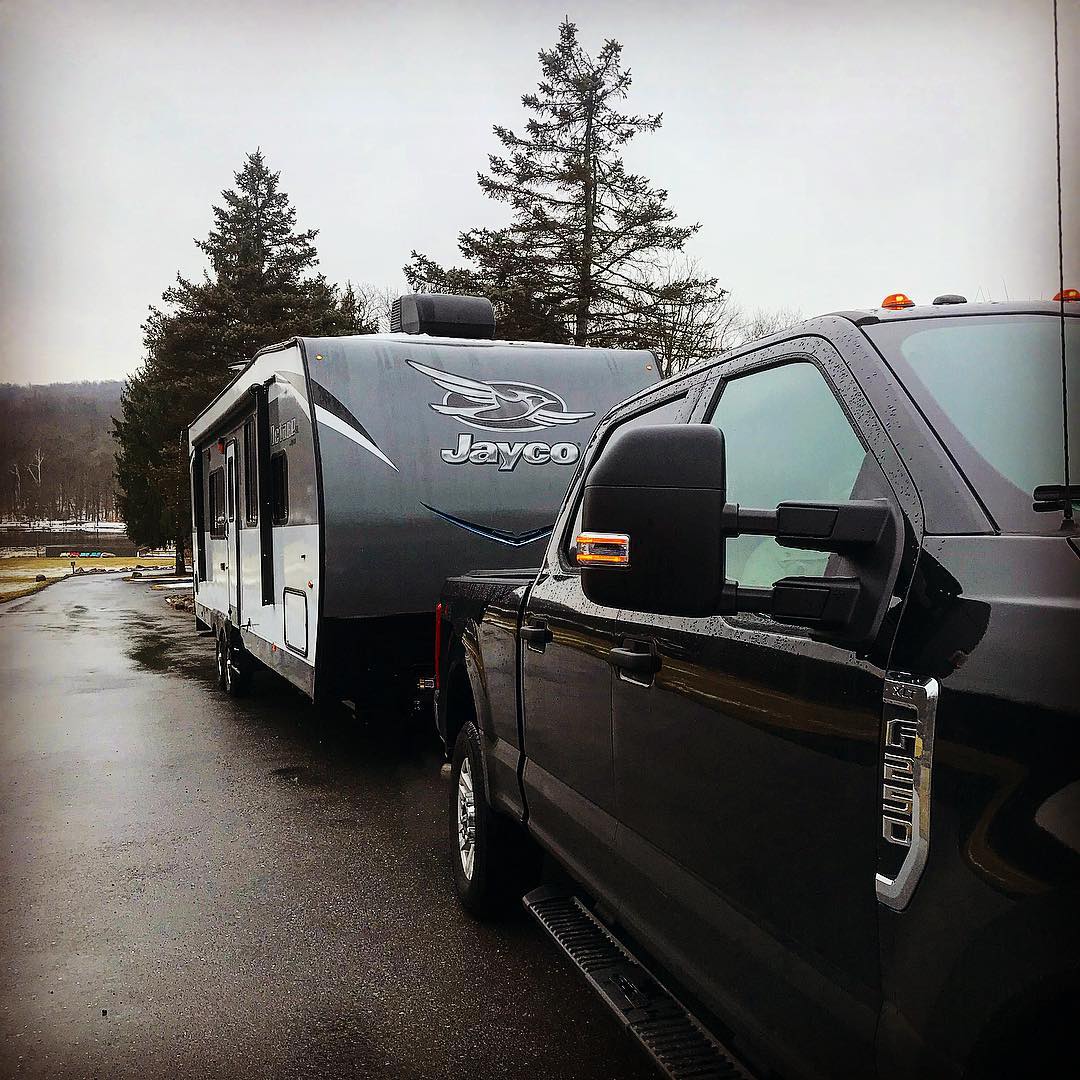
Now let’s get real. The truth is that most people do a fine job winterizing their RVs. The majority of RV owners know this is an important part of regular maintenance, and they’re aware of the dangers of freezing water.
Safely storing the RV? That’s a whole different story.
If you hang out on any RV social media channels, you might have picked up on this already. More people have questions about rodents, insects, batteries, and covers than they do about antifreeze.
So we spent a good amount of time asking Mark about the biggest RV storage questions out there, including how to keep mice at bay and whether to cover your camper.
Inspect all the seams and seals on the RV and Roof.
Anywhere there is a hole cut in the RV for a window, door, or storage compartment, it needs to be inspected. If any of the seams and seals are damaged or cracked, make sure you replace them before you place the RV in storage. Most importantly, walk the roof.
Maintain or store your batteries properly.
If you are keeping your battery on the RV, you need to make sure that you keep it charged. If it gets cold enough for your batteries to freeze, they can expand and crack the casing. Mark sees so many people forced to buy new batteries every year just because they haven’t maintained them properly. He recommends investing in a battery minder. There’s actually a course on battery maintainence over at RVOnlineTraining.com. You can find the RV Battery Care and Maintenance Course here.
Invest in tire covers.
RV tire covers are so inexpensive, and they are also the easiest way to protect your tires from the damaging UV rays that will cause cracks over time. Just make sure you check tire size before ordering.
You also don’t want your tires sitting on frozen ground. Raising them with levelers or even just wood blocks will help them last longer.
Cover your RV with a quality cover.
This is a highly debated topic in the RV community, but Mark firmly believes in covering an RV if its sitting outside for long periods of time. HOWEVER. You need to invest in a quality cover that is waterproof, yet made of a breathable material. Make sure you get the right size, so the cover doesn’t blow in the wind and tear. The good ones will have access to the door and RV interior. Even with a cover, you’ll still want to inspect the RV on a regular basis for pooling water or snow.
Do not, under any circumstances, cover with a blue tarp. This will just trap moisture and cause damage.
Exercise the engine and generator on a motorhome.
You don’t want to let your motorhome go all winter long without running the engine and generator. An onboard generator should be run for a couple of hours every month.
Prevent damage from mice and squirrels.
You will find A LOT of advice on the interwebs about methods for keeping rodents out of RVs. The problem is that these methods are dicey at best. For example, many folks will tell you that dryer sheets keep mice out of campers. However, I have heard from dozens of people that mice have actually used those same dryer sheets to create nests in the RV. Likewise, you’ll hear some folks rave about peppermint oil and some swear it offered no protection at all.
So, Mark highly recommends rolling up your sleeves and doing some good ole fashioned detective work. Search through every inch of the camper to find any holes at all, and use spray foam to fill in those entry points. Mice can get in through a dime-sized hole, so wherever you see daylight, fill it in.
In addition to sealing up the RV, setting mouse traps is the next best way to prevent rodent damage. Whatever you do, DO NOT use poison. A rodent will eat the poison then go find a hidden place to die. The last thing you want to do is have a rotting rodent in the wall of your RV.
Ultimately, we all want our RVs in tip-top shape for the next camping season. The best way to enjoy the RV lifestyle is by properly maintaining your investment and avoiding unnecessary damage. Take the time this fall to winterize and carefully store your RV. That way we can all have more fun at the campground when the temperatures warm up again!
See you at the campground,
Stephanie + Jeremy

